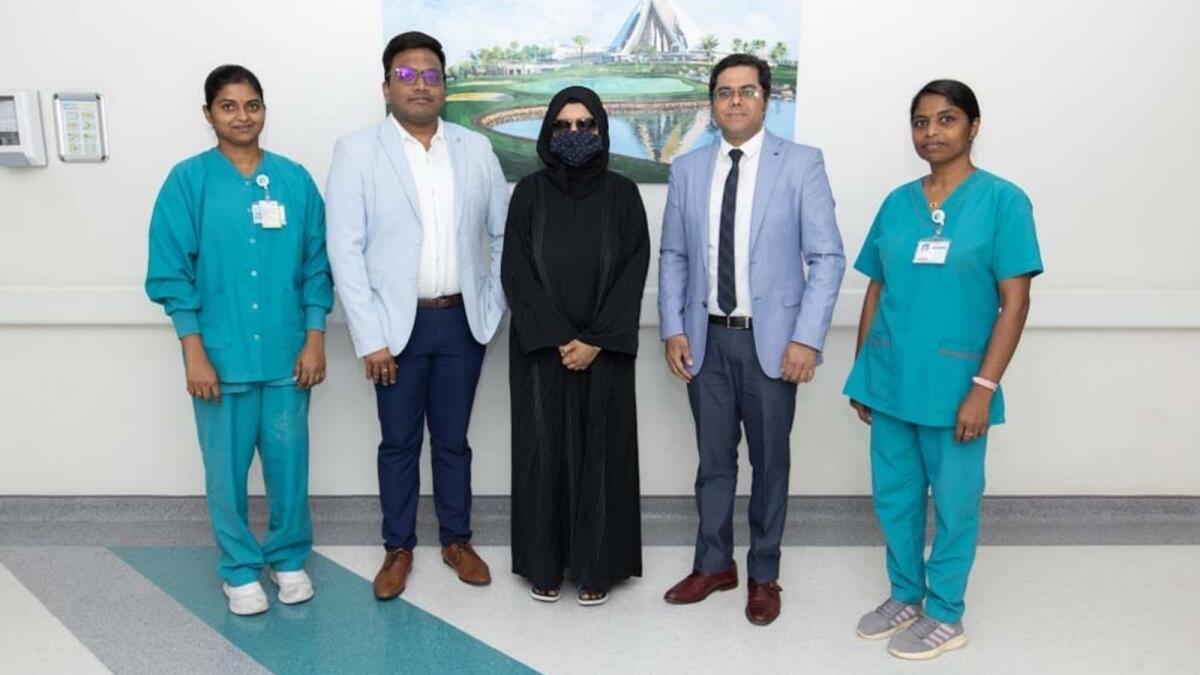Ovarian cancer is a deadly disease that affects women globally. Salma Sheikh, a 41-year-old Pakistani expat, experienced symptoms such as early satiety, lower abdominal pain, and weakness, which led to her diagnosis of Stage 3 ovarian cancer. After consulting with Dr Keerthi Banavara Ravi at Zulekha Hospital Dubai, further examination revealed large masses in both her ovaries and moderate ascites in her abdomen, confirming the diagnosis of primary bilateral ovarian cancer.
Due to the advanced stage of Salma’s cancer, an aggressive treatment plan was devised, involving chemotherapy, surgery, and hyperthermic intraperitoneal chemotherapy (HIPEC). Dr Bharadwaj Ponnada administered neoadjuvant intravenous chemotherapy to reduce Salma’s ascites and improve her general condition before she underwent a 15-hour supra-major surgery to remove all visible cancer from her abdomen. The surgery included the removal of various reproductive organs and peritoneal tissue affected by the cancer.
Following the surgery, heated chemotherapy drugs were applied directly inside Salma’s abdomen to eliminate any remaining cancerous cells. She has since completed two additional cycles of chemotherapy post-surgery and is making a remarkable recovery, maintaining a normal diet and engaging in everyday activities. Doctors note that there is a 40% chance of cancer recurrence given the advanced stage of Salma’s cancer, but ongoing chemotherapy and targeted therapy can help mitigate this risk.
The exact cause of Salma’s cancer remains unclear, but factors such as family history and hormonal imbalances may have played a role. Genetic testing is currently underway to provide further insights into the underlying causes of her cancer. Dr Keerthi emphasizes the importance of early detection in ovarian cancer cases, as it reduces the extent of surgery and treatment-related morbidity, leading to better outcomes. Regular ultrasounds and cancer antigen measurements are crucial, especially for individuals with a family history of ovarian cancer.
Advanced ovarian cancers can be effectively treated with modalities such as cytoreductive surgery and HIPEC, allowing patients to lead normal lives post-treatment. The expertise, team spirit, and experience of surgical and medical oncology teams are critical in managing advanced cancers successfully. Salma’s case serves as a reminder of the importance of timely diagnosis and comprehensive treatment in combating ovarian cancer and improving patient outcomes.











